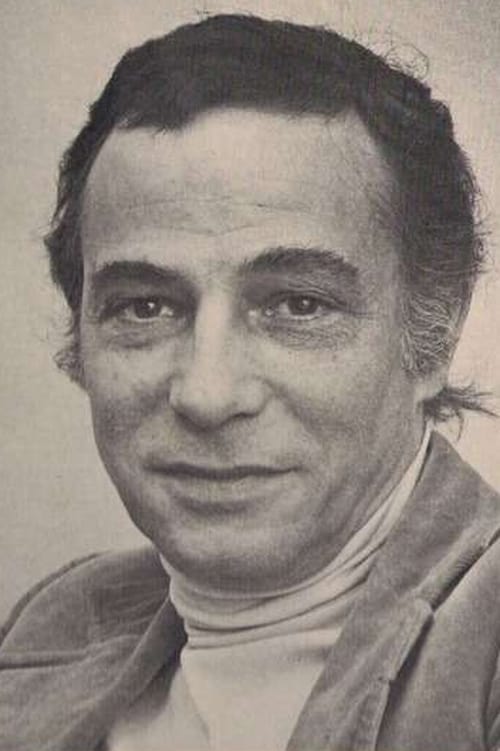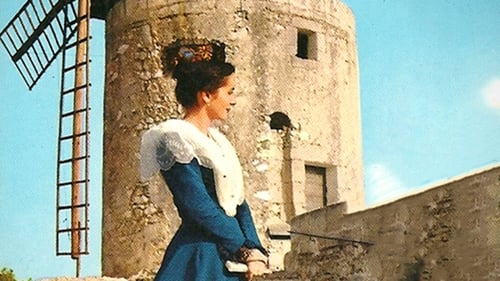Jean Négroni
Birth : 1920-12-04, Constantine, Algeria, France
Death : 2005-05-28
History
Jean Négroni (4 December 1920 – 28 May 2005) was a French actor and theatre director particularly known for his voice work, such as his role as the narrator in La Jetée (1962).
Jean Négroni was educated in theater by Albert Camus, and was an early companion of Jean Vilar at the Théâtre National Populaire and at the Festival d'Avignon. Négroni founded the Maison des arts et de la culture de Créteil at Créteil in 1968, and was its director until 1978.
Négroni's career was marked by his portrayal of Robespierre — first on an episode of the television program La caméra explore le temps, and later in the theater under the direction of Robert Hossein.
Négroni provided the voice of the narrator in La Jetée (1962) and also narrated Pierre Henry's concrete music album L'Apocalypse de Jean (1968).
Source: Article "Jean Négroni" from Wikipedia in English, licensed under CC-BY-SA 3.0.
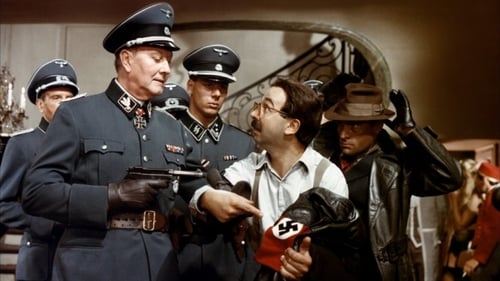
le narrateur
It is 1943 in Paris. Like so many others, the Bourbelle family's home has been taken over by the Germans and they now live in their cellar. Little do they know that the son, Guy-Hubert Bourdelle, is far from being the cowardly hairdresser he pretends. He is in truth the Germans’ most feared opponent: le super-résistant!
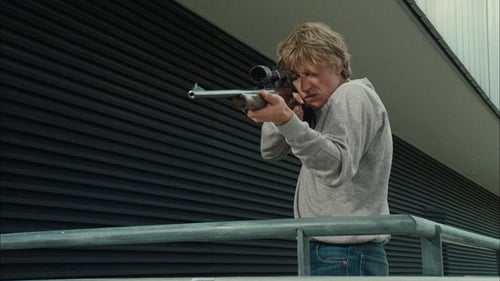
Carlos de Palma
The film's plot is based on the Kennedy assassination and subsequent investigation. The film begins with the assassination of President Marc Jarry, who is about to be inaugurated for a second six-year term of office. Henri Volney, state attorney and member of the commission charged with investigating the assassination (based on the Warren Commission) refuses to agree to the commission's final findings. The film portrays the initial controversy about this, as well as Volney and his staff's reopening of the investigation.

Spitzer
L'Alpagueur is a free-lance spy from the French secret agency. He's put on the investigation about L'epervier, a serial-killer who employs young boys to help him robbing banks before killing them.

Narrateur (voix)
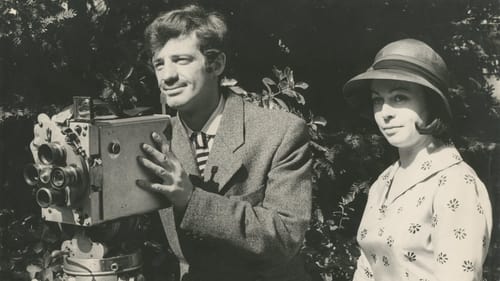
Récitant (voice)
An interesting mixture of filmed scenes with Belmondo and archival footage regarding cultural aspects of all kind around Paris, starting at the end of the 19th century and ending in the mid-1960's. Jean-Paul Belmondo leads us through the movie starting as a young photographer around 1900, a reporter in both world-wars and doing fictional interviews with lots of celebrities.

Reciter (voice)
Morbihan is one of the poorest regions in Brittany. Joseph, a 33-year-old farmer, can no longer live off the land. He is hired at the fancy new plant that has just opened where he enters a world of rote work. Fortunately he can go home to his farm every evening, far from the large urban centers where workers must usually live.
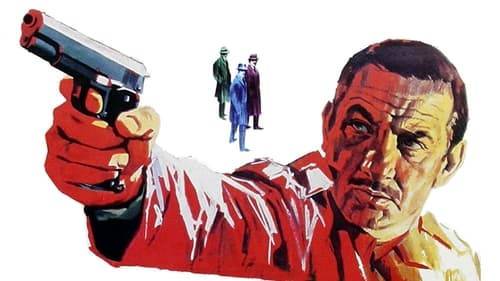
L'homme
A gangster escapes jail and quickly makes plans to continue his criminal ways elsewhere, but a determined inspector is closing in.

Comte de Saint-Germain
A gambling countess comes by a secret three card combination that wins her a fortune, but she is allowed to use it only once and not gamble again. She passes on the info twice, and the recipients both die violently. She is warned that if she passes it on again, she too will die. Many years later, a young soldier discovers that the countess has the secret, and he resolves to get it out of her.

Pierre
A study of conscience set against the trial of Eichmann in Israel.

Narrator (voice)
We join the idyllic world of conductor Petre Mihajlovski, whose slow, narrow-gauge Macedonian train was built in 1895, and runs from Prespa to Ohrid. Here are charming scenes of laundry washed by the lake, the soapy water heated in large copper kettles.

Robespierre
From April to July 1794, Robespierre forms a triumvirate with Saint-Just and Couthon. He plans to instate his ideal based on virtue and in times of revolutionary crisis, on terror. In May, he establishes the Cult of the Supreme Being. However, he still has numerous enemies...

Robespierre
From November 1793 to April 1794, in order to reinforce the power of the Revolution, Robespierre strikes right and left. He successively sends the Hébertists to the guillotine, followed by Danton, the chief of the Indulgents, and Camille Desmoulins, who asked the new regime for clemency in his journal, Le Vieux Cordelier. Robespierre triumphs, but he is alone...

Narrator
"I was interested by the fact that some old guy, after the Parthenon’s glamour, devoted himself in a much smaller temple, where there was no white marble, no nothing. All Greek temples are dedicated to Apollo etc, and this particular one was not dedicated to anyone and is in a place where there never was a city nearby, in a kind of wasteland, in a ditch. But, just by going up a bit –you are in the centre of Peloponissos- on a clear day, you can see the sea on both your left and right. I went back there, at least six, seven or eight times, as if I wanted to think or find myself. So, at the temple in Bassae, I made a short 10 minute film and I was lucky enough to encounter two days of clouds and mist between the columns." —ecofilms.gr (Jean-Daniel Pollet, Tours d’horizons, Editions de l’oeil 2005)

Narrator
This collection of rare footage examines WWII from an unusual perspective, that of everyday people. How did civilians cope with the ferocity of the "Blitz", occupation, and devastation?
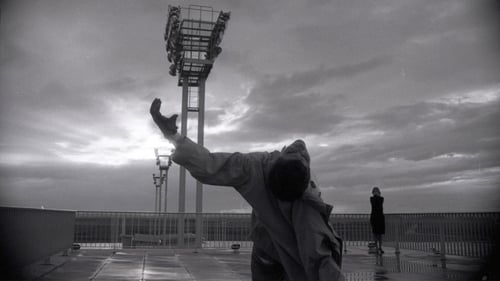
Narrator (voice)
A man is sent back and forth and in and out of time in an experiment that attempts to unravel the fate and the solution to the problems of a post-apocalyptic world during the aftermath of WW3. The experiment results in him getting caught up in a perpetual reminiscence of past events that are recreated on an airport’s viewing pier.

Narrateur
Evocation of the Oradour-sur-Glane Massacre on 10 June 1944, when 642 of its inhabitants were slaughtered by a Nazi Waffen SS company, based on a visit to Diors' Museum of the Three Wars" and archive photographs.

David
Gatti focuses on two men in a German concentration camp who have been cruelly penned inside an enclosure. One of the men, Karl (Herbert Wochinz), is a strong, bitter anti-Nazi German -- a target of the Gestapo. The SS wants information on a rumored organization of resistance fighters inside the prison and they know he has it. The other man, David (Jean Negroni) is a Jew. If one of the men dies within a certain time then the other will be released. He will not be killed. Otherwise, both will be executed. The resistance fighters in the prison try to help the two as best they can, while the pair inside the enclosure slowly come to know each other as though they were brothers.

Récitant / Narrator (voice)
In the year that Cannes Film Festival handed out awards to Federico Fellini for La Dolce Vita, L'Avventura by Michelangelo Antonioni, and Kagi by Kon Ichikawa -- 'Le Sourire' won the Palme d'Or for Best Short Film in 1960. This quiet and intelligent film is a remarkable interpretation of a young monks perspective into a world of meditation, sacred geometry, and coming of age. A tribute to Buddhism, introspection and the wonders of nature...a short but lasting work of art.

Narrateur
Rahim's older brother Mokhi refuses to take him to Kabul's big bouzkachi game. Rahim decides to go there on his own. Guided by the angel of death, Azrael, Rahim follows a difficult path to Kabul.

Jo Guardini, now the peaceful owner of a charming inn by the banks of the River Marne, once was a dreaded gangster. The respectful citizen does not want to have anything to do with the underworld any more. Unfortunately, two of his former accomplices kidnap a little girl and decide to hide her in his hotel. What will Jo do : side with the law in the person of inspector Loriot or have a relapse in crime?

Récitant / Narrator (voice)
Short documentary ordered by the magazine "Présence Africaine". From the question "Why is the african in the Human museum while Greek or Egyptian art are in Le Louvre?", the two directors expose and criticise the lack of consideration for African art. The film was censored in France for eight years because of its anti-colonial perspective.

Un officier espagnol (uncredited)
Brussels in the year 1568, as the Flemish people are fighting against the tyranny of the Spanish occupiers. Led by Count de Rysoor, the revolt against the ruthless Duke of Alba, is meant to help Prince William of Orange to get into the city and come to power. Now, the count's lieutenant, has an affair with Elisabeth, Rysoor's wife. For the time being, the count, who thinks of his homeland first, turns a blind eye. But such a relationship might well undermine the whole rebellion movement.

In the harbor of Toulon, on the “Ocean” training ship, the apprenticeship of the cabin boys and experts of the Navy is punctuated by permissions in town, friendships, bullying, and loves.
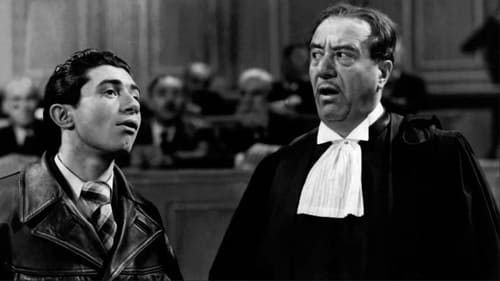
(uncredited)
Loursat, a lawyer, lives with his daughter Nicole in a sinister and vast bourgeois residence. Abandoned for nearly twenty years by his wife, the brilliant lawyer has sunk into alcoholism and his relationship with his daughter is virtually non-existent. However, one day the corpse of a stranger is discovered in the residence of Loursat. Nicole, who frequents a gang of young people who escape boredom by stealing cars and other objects, is immediately suspected.

A college student (uncredited)
Micheline Chevassu is a young, naive woman living in an orphanage. Through classified ads, she has a date with an unknown man. She escapes from the orphanage to go to it, dreaming of the Prince Charming. But comes Nicolas Rougemont, an unattractive middle-aged man... He pretends not to be the author of the letters, who could not come...
